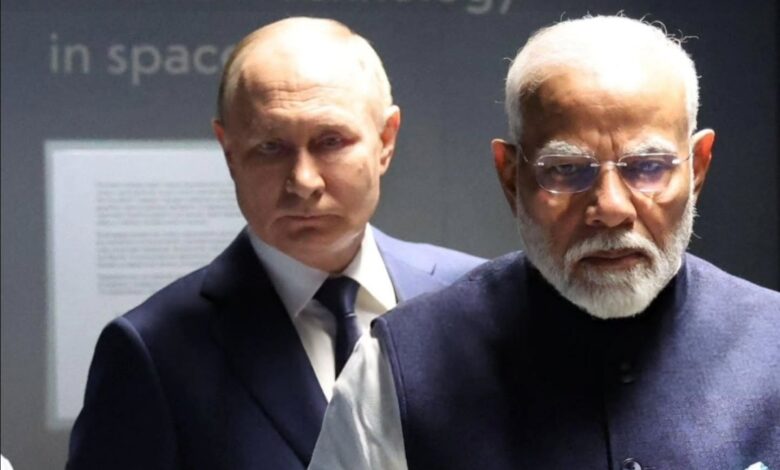India’s Russian oil dilemma: A question of helplessness, not backstabbing
Until India builds genuine economic and technological self-reliance, its foreign policy choices will remain constrained

 The recent decision by Prime Minister Narendra Modi’s government to cancel the purchase of Russian oil has sparked debate over whether it constitutes a betrayal of Russian President Vladimir Putin.
The recent decision by Prime Minister Narendra Modi’s government to cancel the purchase of Russian oil has sparked debate over whether it constitutes a betrayal of Russian President Vladimir Putin.
However, a closer examination reveals that this is less about strategic betrayal and more about India’s structural helplessness in the face of Western economic dominance. Far from being an act of defiance against Moscow, the move underscores the degree to which India remains deeply entangled in the economic, technological and geopolitical frameworks of the United States and its allies.
India’s economy is so deeply interwoven with the West that openly defying the US or European sanctions is almost impossible without risking severe domestic repercussions.
Putin, an astute observer of global power dynamics, is well aware of India’s limitations. Unlike truly independent nations such as China, India has little leverage against the West. For example, if just 10% of U.S. based IT contracting projects were cancelled, India would see between 1.12 to 1.55 lakh jobs vanish almost overnight—an economic shock that would trigger mass panic. The country’s defense sector, heavily dependent on imported high-grade technology, would be crippled if Washington imposed an embargo.
India’s reliance extends beyond defense and IT. The country’s merchant shipping tonnage and marine insurance capabilities are too weak to sustain a “shadow fleet” for circumventing sanctions. The experience during the COVID-19 pandemic serves as a stark reminder of India’s vulnerability: in 2020, US President Donald Trump put pressure on New Delhi to lift export controls on the anti-malarial drug chloroquine. Within weeks, 90% of the national stock was shipped to the US, leaving Indian patients — particularly those with rheumatoid arthritis —struggling to access the medication.
The underlying reason was simple: the US is India’s largest market for generic pharmaceuticals. A tablet manufactured in Solan, Himachal Pradesh, for 27 paise could sell for 56 cents in the US, yielding a 414% profit after tariffs and taxes. In India, the same drug would bring only a 46% profit. Giving up the U.S. and European markets would instantly wipe out 70% of the sector’s wealth.
This dependency is further reinforced by the global financial system. The US jurisdiction over dollar-denominated accounts means that American authorities could, if they chose, investigate or freeze the offshore holdings of Indian political and business elites. Such moves could jeopardise not only personal fortunes but also the political “war chests” used for electioneering and party control.
In contrast, nations like China, Japan, and South Korea retain substantial indigenous technological capabilities—81%, 59% and 57%, respectively—allowing them to withstand or retaliate against Western pressure. China, for example, could disrupt U.S. supply chains by restricting rare earth exports, potentially causing double-digit inflation in America within a year. India, by comparison, has less than 10% indigenous technology capacity, leaving it overwhelmingly dependent on foreign licensing and imports.
Thus, Putin is unlikely to view New Delhi’s decision as an act of backstabbing. Backstabbing implies an equal partnership where one side willfully undermines the other. India’s predicament is different—it is that of a country operating under constraints imposed by its long-standing economic dependencies. The real anger, the article argues, should be felt within India itself, at its inability to act independently on matters of national interest.
While China leveraged its economic opening in the late 20th century to build a self-reliant industrial and technological base, India pursued liberalisation in a way that entrenched dependency on the very powers it once sought to resist. Four decades after both nations stood at comparable developmental crossroads, China has positioned itself as a global power capable of defying the United States, while India remains tethered to Western goodwill.
The cancellation of Russian oil imports is not an isolated incident—it is a symptom of a deeper structural reality. Until India builds genuine economic and technological self-reliance, its foreign policy choices will remain constrained, and strategic autonomy will be more rhetoric than reality.





